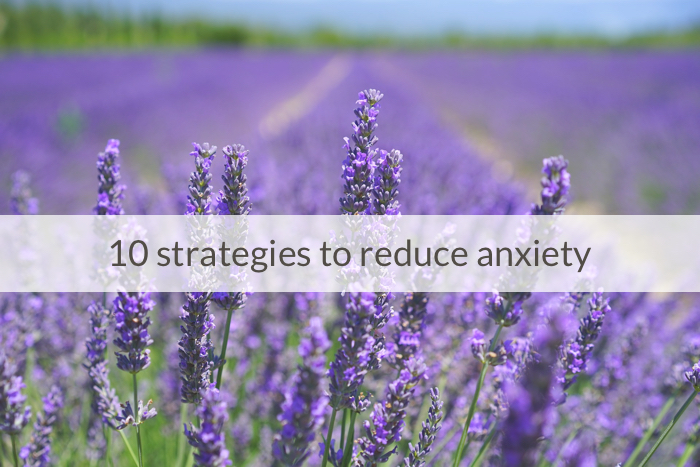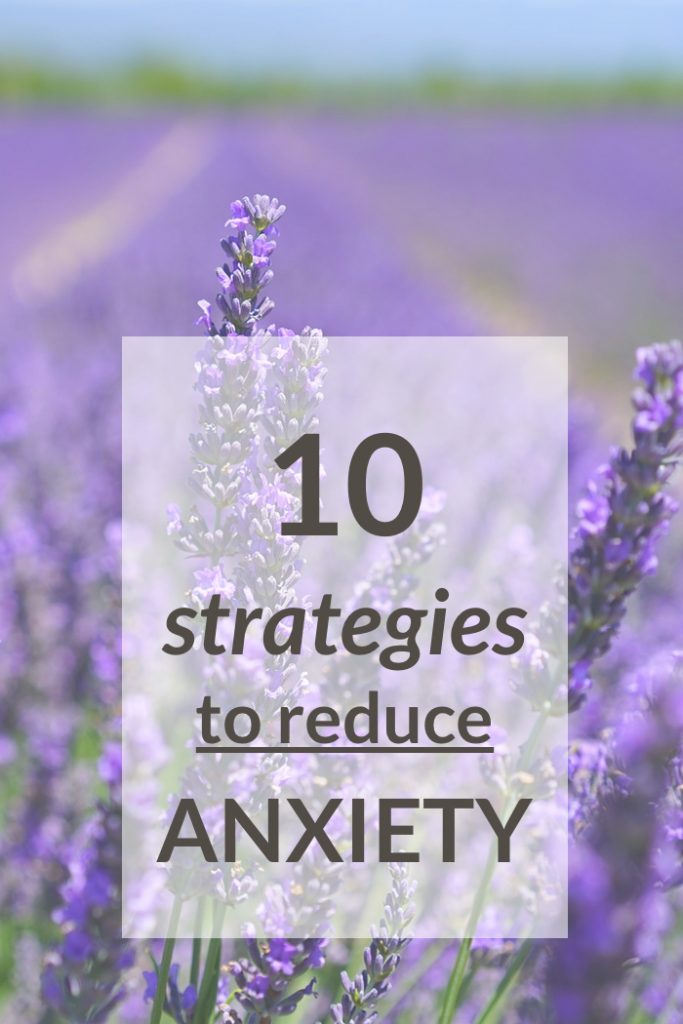 Hashimoto’s autoimmune disease and anxiety are often intimately linked. Indeed, anxiety seems to be the ever-present companion of thyroid disease and in my experience it can be a tough nut to crack. In this particular post, I offer you a list of natural strategies to naturally reduce stress and anxiety that have been successful for me.
Hashimoto’s autoimmune disease and anxiety are often intimately linked. Indeed, anxiety seems to be the ever-present companion of thyroid disease and in my experience it can be a tough nut to crack. In this particular post, I offer you a list of natural strategies to naturally reduce stress and anxiety that have been successful for me.
That being said, I know that sometimes anxiety can become so severe and overwhelming that the only answer, even if for a short period of time, is medication. And that’s okay, too. Just know that these natural remedies to overcome stress and anxiety can be used instead of medication, in conjunction with medication, or to help you wean off of medication. It is totally up to you.
At the beginning of my healing journey, I suffered a lot from anxiety, panic attacks, and severe insomnia. You can read about my story here and here. So anxiety is something I have been dealing with for a long time and I have tried many remedies, both chemical and natural, to try to overcome this crippling feeling. For me, anxiety medication has always been a very short-term solution to alleviate the worst symptoms and to help me function in my everyday life. However, I found a more profound and durable relief with the natural techniques listed below.
Before you continue reading, consider this:
- I strongly recommend that you check with your doctor to eliminate physiological causes of stress and anxiety such as an overactive or underactive thyroid (including Hashimoto’s Thyroiditis or Graves’ disease), burned out adrenals, neurotransmitter deficiencies, or gut dysbiosis (brain health starts in the gut!).
- These strategies work better together as they have a synergistic effect. Applying one or two of these techniques on a sporadic basis will be less effective than applying all of them regularly. For maximum benefits, I recommend that you make your recovery your number one priority and schedule these strategies every day for a period of at least one month.
My 10 strategies to reduce stress and anxiety:
- Adopt an anti-inflammatory diet. For me, it was the Autoimmune Protocol (also referred to as the AIP) because I was dealing with an autoimmune disease. You might not need the same diet as me, but I urge you to adopt a healthy diet and avoid refined sugars and processed foods as much as possible. Too much sugar and not enough real food (I am talking about real ingredients such as grass-fed meat, wild-caught seafood, locally grown and seasonal fresh produce) definitely wreaked havoc on my system and made it so much harder to be zen.
- Move your body any way you can. Exercise, yoga, gentle stretches, walking outside in nature, etc. All of these are good options and will provide an outlet for pent-up stress and anxiety. Exercise is also a natural endorphin booster, a feel-good chemical that helps improve your mood and reduce symptoms of anxiety, and the effects can be long-lasting. If you are dealing with an autoimmune disease, be mindful you don’t over-exercise as it can be detrimental to your recovery.
- Slow down your mind. When one is in stress or anxiety mode, it can be very hard to stop intruding thoughts from swirling constantly in one’s mind. Racing thoughts, irrational fears, constant focus on what’s negative, dissatisfaction, etc. Your brain needs a vacation and one way to find respite is through relaxation and meditation techniques. Meditation has nothing to do with religion or some weird voodoo practice. It is all about slowing down, quieting your thoughts, and living mindfully in the moment. There are many relaxation/meditation techniques out there, ranging from the Relaxation Response to guided meditations. Choose what you feel more comfortable with, knowing that you may change in a couple of months and switch to something else.
- Go to therapy! I grew up in Belgium and back then therapy wasn’t a common practice. I fact, I can’t remember anyone I knew who went to see a therapist. What a loss, truly! When I hit my health crisis in 2009 (read about it here), therapy was one of the most effective tools I used to help me overcome my anxiety. I didn’t want to burden my family with all of my fears and worries; they were already second-hand sufferers of my autoimmune disease. So I turned to a therapist to help me deal with all of the emotional upheaval associated with living with a chronic disease. Don’t be shy; ask for help.
- Natural supplements can help. Supplements are a big part of my recovery plan. However, I don’t just pick and choose what I think will work best for me. I work with a functional medicine practitioner who prescribes all of the supplements I take. I value his professional guidance. As with the food you eat, quality is paramount and you need to make sure they don’t contain icky ingredients like gluten. Some supplements that may help your mood and anxiety include: omega-3s, phosphatidylserine, tryptophan, valerian, 5-HTP, SAMe, St. John’s Wort, magnesium, adaptogenic herbs (caution for strict AIP, adaptogenic herbs are well-known for stimulating the immune system – rhodiola rosea is safe to use), kava kava, L-5-MTHF, and probiotics. Ask your doctor for help in this area.
- Your journal is your best friend! Once again, journaling wasn’t something I used to do as a little girl. But, boy, how it has been helpful during my health crisis! Treat yourself to a cute little journal (with flowers and a gold lock if you want!), a colorful felt pen (my personal favorite), and start writing. Write without thinking too much and write about everything. Write every day or once a week. Write about your moods, your feelings, what happened at work, your doctor appointments, your relationships, etc. Also try this: finish every journal entry with 3 things you are grateful for.
- Use essential oils. I like to use lavender essential oil right before going to bed for relaxation and to improve my sleep. I dab a drop or two on my wrists and I rub them together. Sometimes I rub a drop behind my ears as well. You can also try adding about 6 drops to a hot bath. Other essential oils for mood and anxiety include: rose, vetiver, ylang ylang, bergamot, chamomile, and frankincense. If you don’t like applying essential oils directly to your skin, try an oil diffuser.
- The Alpha-Stim (cranial electrotherapy stimulator). In a nutshell, the Alpha-Stim is a small, non-invasive device using low-intensity electrical impulses to gently promote the calming alpha brain waves. A daily session of 20 minutes can help you overcome anxiety and depression and improve the quality of your sleep. I find it extremely effective and found great relief from it in the past. The device is a little bit pricey, but well worth the investment in my opinion. Plus, you will keep this for years!
- Acupuncture and moxibustion. Weekly acupuncture sessions can really help lower your anxiety and improve your sleep. I always sleep like a baby after a session! Tell your practitioner that you need help in those areas and he/she will place the needles accordingly. You can also practice moxibustion at home by yourself. Moxibustion use little moxa sticks (find them on Amazon – I recommend to start with the low-heat moxa) in a similar way that acupuncture uses needles. Ask your practitioner where to place the moxa sticks before attempting this at home.
- Remember that anxiety is a just a mood. I know, this one is tough, especially when you are in the middle of an anxiety attack! But it is a practice to work on every day instead of a one-time deal. Somehow, I find it a little bit easier to deal with anxiety when I know that it is temporary feeling and that it will pass. A good motto to repeat to yourself every day: “This too shall pass.” Write it on a sticky note and place it all over the house as a reminder.
I hope that these techniques will bring you the same relief I gained from them. Once you start getting better, keep up a healthy routine and know that if at any time in the future you experience anxiety again, you can always go back to these strategies.
Click it to pin it!







Thank you so much, Sophie! So good to be reminded that autoimmune diseases need attention…and to learn new ways to enhance healing. I, too, have Hashimoto’s and am grateful for your reminder that I can’t ignore my symptoms and hope they will just go away one day. Thank you for the suggestions in this post…some I’ve tried and some are new…..and that consistency is important! Now, I’m off to enjoy some of this beautiful Colorado sunshine while taking a nice walk!!
Thank you Nancy for your note! And yes, sunshine and warmth finally for Colorado!
Sophie, Just reread part of your story (I had read it before) and was, once again, struck by the similarity in the way our “stories” began. I, too, awoke about 5 days following a day surgery procedure with the same symptoms as you described. Very scary!!! That was in 2013. Thus began a long journey (unfortunately all too familiar for many) of being told there was nothing wrong but just some anxiety and I needed to calm down. Then, the next diagnosis was depression and ‘here are some anti-depressants”. Another dead end (with a strong history of thyroid issues for both grandmother and mother) ‘No, there’s nothing wrong with your thyroid—you numbers are in normal range’. After discovering that a thyroid can have antibodies, I asked for a blood test for that. Voila! BUT, my then endocrinologist still didn’t know what to do with that because my numbers were not in the hypothyroid range. After almost 3 1/2 years, I finally found an endocrinologist who gave a correct diagnosis … and took into account my symptoms. He’s not a functional medicine provider but, at least, we are now on course. Also, found a PCP who is sympathetic and helpful regarding my symptoms and not just passing it all off to ‘anxiety/depression’. So, thank you for sharing your story! I still very much struggle with sleep especially but diet change and more exercise are helping to make some positive changes.
Wow Nancy! Indeed it seems like everything “got triggered” the same way for you and me. I am so glad you finally found someone to help you with your thyroid. Hopefully with the thyroid medication, the diet, and some exercise, you will be soon on your way to many full nights of deep and restful sleep! Thank you for stopping by and leaving me a note! 🙂